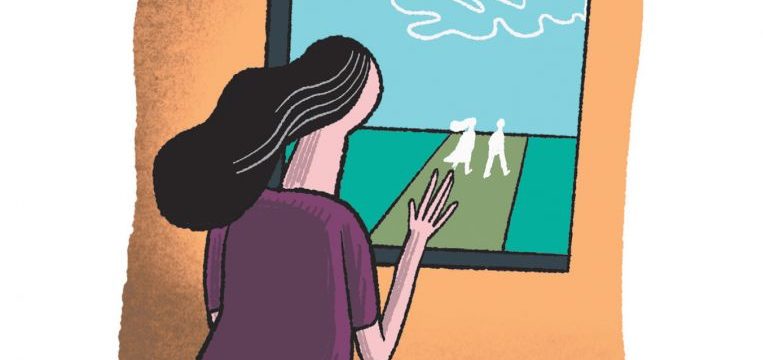After eight months, her children were coming home. They were rotating between services – her son from military to healthcare, her daughter from healthcare to construction – and their medical reports were clear, so they could spend one weekend with immediate family before their next posting.
She had to be tested too, to confirm that she didn’t have the virus. There were still inexplicable community outbreaks, and no vaccine or reliable treatment. She was relieved to get a negative result. It meant she could hold her twins again, not just talk to a screen or send haptic emoji, which simulated affection but felt like sandfly bites on her skin.
Her children arrived on Friday, whipping off masks and gloves to hug her. They were muskier, leaner, louder. On video calls they had let her mother them: Are you eating enough? Is there enough protective gear? (So many rumours, also about shortages of rice and filtration tablets.) Now, she realised, they were adults with their own views of the world.
At dinner her son said, “Remember M_____, the one we called teacher’s pet? So our ships surrounded the small motorboats, they were trying to enter our waters, our commander told us to stop them. M_____ started arguing with him!” He scoffed. “You know all those people have the virus, that’s why they want to sneak in. And M_____ wanted to let them! We’re doing National Service for Singaporeans, not for them!”
“How did you stop them?” she asked.
He shovelled food into his mouth. Both children were eating furiously. They did so at every meal that weekend, driven by something more than hunger or comfort.
On Saturday she said, “Take your time, no rush.”
Her daughter said, “The virus doesn’t wait, it strikes once it has the chance. If we slow down, it’ll spread even faster. Remember that,” she said to her brother. “There’s a new wave of cases at your hospital. It’s going to be full-on, lots of tough choices. No mercy.”
Her daughter sounded like the government officials she had seen in the news. Where did they learn to talk like that, she wondered, what choices had her daughter made?
After eating, the twins roamed the flat, helping with housework, asking about her job (she remote-operated a machine at a factory making medical-grade test tubes) and her friends (she saw them once a month, when it was safe in the virus’s replication cycle to meet in person).
Later they went into a room and closed the door. She thought she heard angry crying. It was a new sound. At their father’s death and after, they had wept but gently.
She remembered cradling them, one in each arm, after they were born. When they got heavier and she had to use both arms for one baby, her husband was still alive to carry the other.
The virus seemed far away then. It wouldn’t take him until the twins were four years old, and she thought, if I get through this, I’ll teach my children everything they need to know.
It was not enough, she could see now. What they had to do, day after day, in the name of the nation’s survival. And if they caught the virus or were injured or died in a service mishap…
The terror kept her up that night, as it had before. She heard crying again. Her eyes were painful but dry.
On Sunday morning when the children stumbled out of their rooms, she had cooked all the food in the refrigerator, enough for a week.
Her daughter said, “Are you feeling okay?”
Her son took her temperature. It was normal.
They ate quietly and industriously for the rest of the day. She wondered what the food was turning into inside their bodies. Strength, wisdom, protection – if only it were that easy.
At sunset, her daughter said, “Sorry we can’t stay.”
“You don’t have to do anything you don’t want to.”
“I want to eat,” her son said.
“I want to sleep in my own bed.”
“At least I don’t have to carry a rifle anymore.”
“You’ll learn to read medical charts,” her daughter said. “A gun is more direct.”
Her son looked as ill as she had felt all day.
At the door, they were about to put on masks and gloves when she circled them with her arms, one twin on each side. They were taller than her husband had been. She ached for the absence of them.
Then they were gone, down the stairs, sprinting for the bus. When she looked down over the parapet, dark figures were running in the same direction. She couldn’t tell which ones were her children.
• Yu-Mei Balasingamchow, 46, is the co-author of history book Singapore: A Biography (2009). Her short fiction has won the Mississippi Review Fiction Prize. She is living under lockdown in Boston and teaching fiction writing online, which has gone much better than she expected.
• To read the other works in this series online, go to str.sg/30Days. To listen to them in a podcast, go to str.sg/JW2f
• For more local digital arts offerings, visit a-list.sg to appreciate #SGCultureAnywhere
Source: Read Full Article
